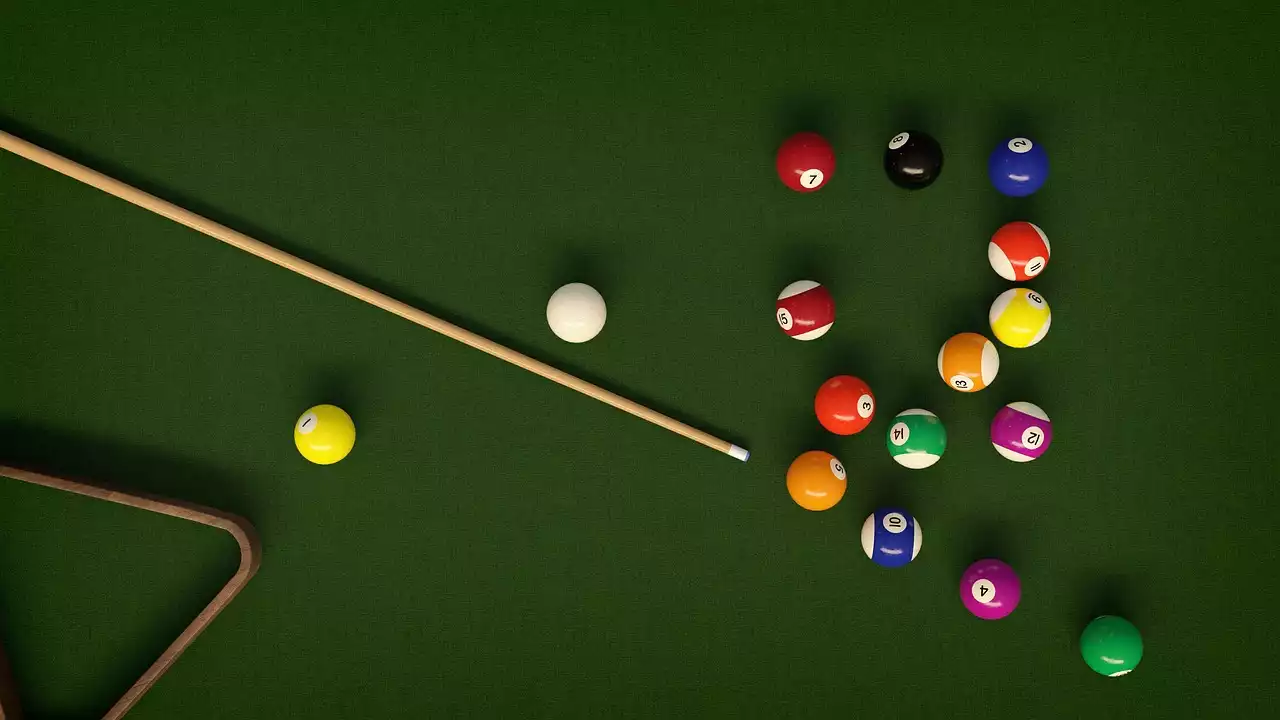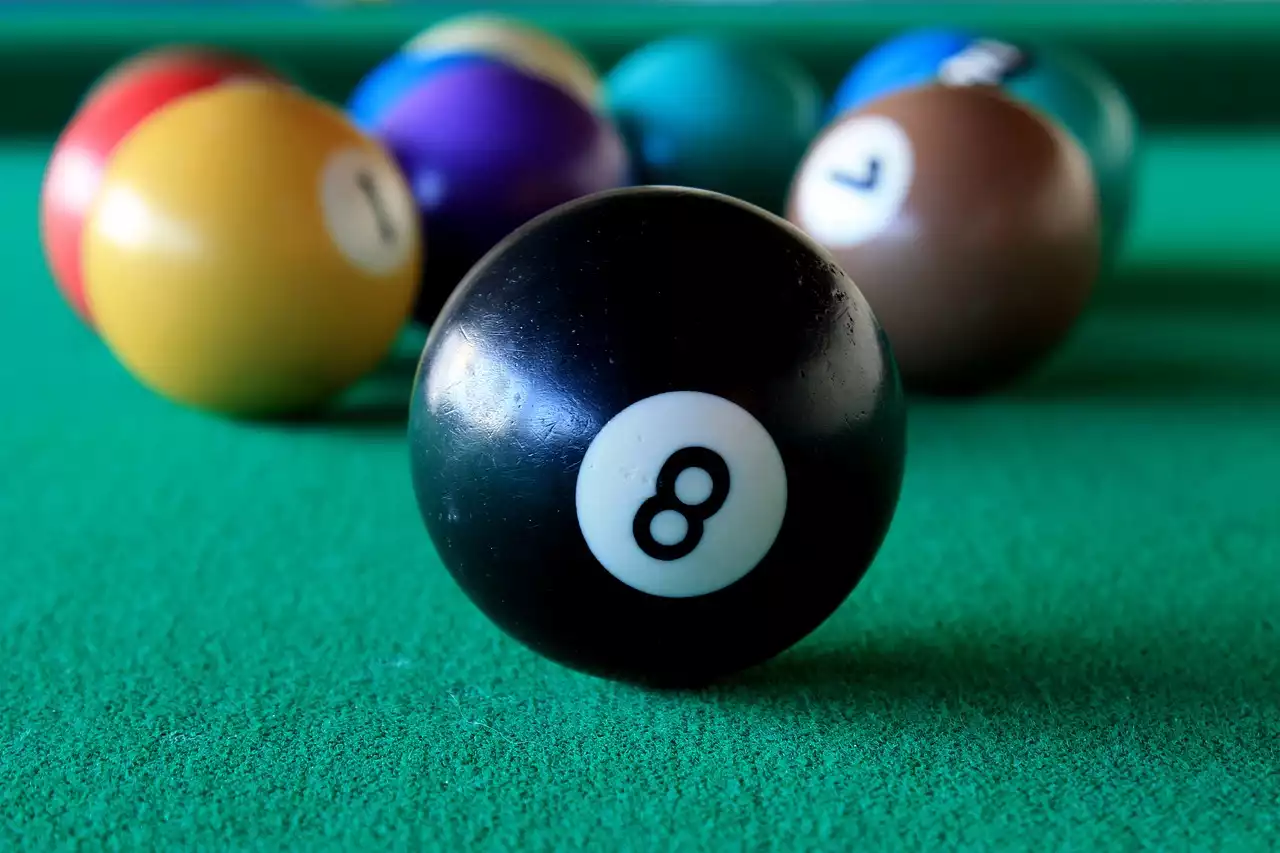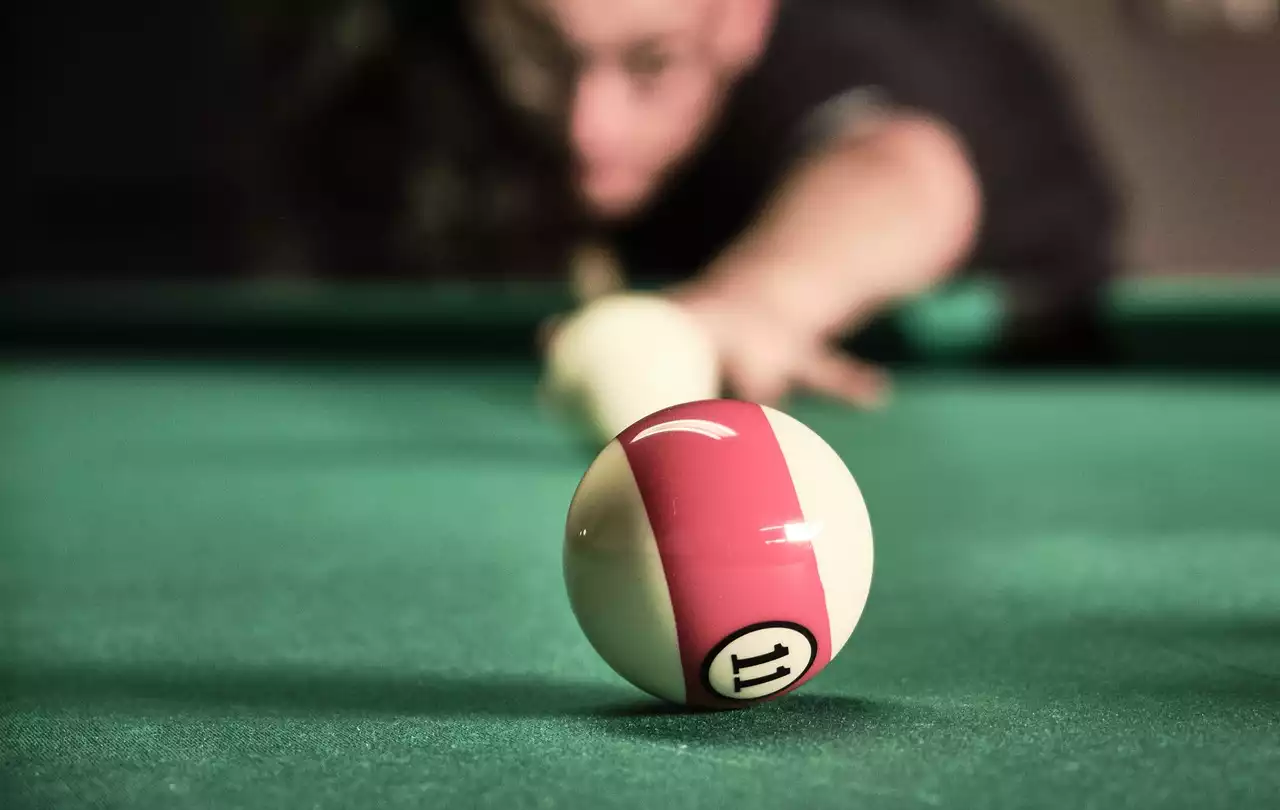The basics of playing pool
Pool, also known as billiards, is a popular cue sport that is played on a table with six pockets. The objective of the game is to use a cue stick to hit a set of colored balls into the pockets, with the ultimate goal of sinking the 8-ball to win the game. The game is played with two or more players, and each player takes turns hitting the balls.
Before you start playing, it's important to learn the basic techniques of pool. The grip, stance, and bridge are crucial to your success in the game. The grip involves holding the cue stick in your dominant hand, with your thumb and index finger forming a V-shape to guide the cue. Your other fingers should be wrapped around the cue for support. The stance involves positioning yourself behind the cue ball with your feet shoulder-width apart and your dominant foot slightly forward. The bridge involves creating a platform with your non-dominant hand to support the cue and ensure a smooth stroke.
In addition to these basic techniques, it's important to understand the different types of shots you can make in pool. The most common shots are straight shots, bank shots, and combination shots. Straight shots involve hitting the ball directly into the pocket, while bank shots involve hitting the ball off the table cushion to make it into the pocket. Combination shots involve sinking two or more balls with one shot.
Rules and regulations of pool tournaments
If you're interested in competing in a pool tournament, it's important to understand the rules and regulations of the game. Pool tournaments are typically governed by a set of rules known as the World Standardized Rules. These rules cover everything from the equipment you can use to the format of the game.
One of the most important rules to understand is the foul rule. A foul occurs when a player does not hit the ball into a pocket, hits the wrong ball first, or scratches (i.e. the cue ball goes into a pocket). If a foul occurs, the opposing player gets ball in hand, which means they can place the ball anywhere on the table before taking their shot.
Another important rule to understand is the win-by-two rule. In some tournaments, the winner must win by two games. For example, if the score is tied at 6-6, the winner must win two more games to win the match.
Types of pool tournaments
There are several types of pool tournaments you can participate in, each with its own format and rules. One of the most popular types of tournaments is the double elimination tournament. In this format, players are divided into two brackets and must lose twice before they are eliminated from the tournament. The winner of each bracket then competes in a final match to determine the overall winner.
Another popular format is the round-robin tournament. In this format, players are divided into groups and play against each other in a round-robin format. The player with the most wins at the end of the round-robin stage advances to the knockout stage, where they compete against the winners of other groups.
Other types of tournaments include handicap tournaments, where players of different skill levels are given a handicap to level the playing field, and speed tournaments, where players must complete a set of shots within a certain time limit.
Preparing for a pool tournament
Now that you understand the basics of pool and the rules of tournaments, it's time to start preparing for your first competition. The first step is to practice as much as possible. The more you play, the more comfortable you will be with the equipment and the techniques of pool.
In addition to practicing, it's important to maintain a healthy lifestyle in the weeks leading up to the tournament. This includes getting enough sleep, eating a nutritious diet, and staying hydrated. You should also avoid alcohol and any activities that could cause injuries, such as extreme sports.
Mental preparation is also important. Visualize yourself playing well and winning the tournament. Focus on your strengths and develop a game plan for each match. Stay positive and don't let mistakes or losses get you down.
Physical preparation for a pool tournament
In addition to mental preparation, physical preparation is also important. You should stretch before each match to prevent injuries and improve your flexibility. You should also warm up with some practice shots to get in the zone.
During the tournament, it's important to take breaks and rest when necessary. This will help you maintain your focus and avoid burnout. Stay hydrated and eat a light snack between matches to keep your energy levels up.
Strategies for winning a pool tournament
To win a pool tournament, you need to develop a solid strategy that plays to your strengths and exploits your opponent's weaknesses. One strategy is to focus on safety shots, which involve hitting the ball in a way that makes it difficult for your opponent to make a shot. Another strategy is to take advantage of mistakes your opponent makes, such as leaving an easy shot or scratching.
It's also important to know when to be aggressive and when to be defensive. Sometimes, taking a risk can pay off, but other times it can lead to a costly mistake. Pay attention to the score and adjust your strategy accordingly.
Etiquettes in pool tournaments
Pool tournaments have their own set of etiquettes that players are expected to follow. These include respecting your opponent, not distracting them during their shot, and being gracious in both victory and defeat. You should also avoid excessive celebrations or taunting, as this can be seen as disrespectful.
It's also important to know the rules of each tournament and abide by them. If you have any questions or concerns, ask the tournament director or a referee for clarification.
Common mistakes to avoid in pool tournaments
There are several common mistakes that players make in pool tournaments, which can cost them the game. These include rushing shots, not focusing on the game, and underestimating your opponent. Avoid these mistakes by staying calm and focused, taking your time with each shot, and respecting your opponent's skills.
Resources for improving your pool game
Lastly, if you want to improve your pool game, there are several resources available to you. You can take lessons from a professional pool player or coach, watch instructional videos online, or join a local pool league. Practicing regularly and playing against players of different skill levels can also help you improve your game.
In conclusion, pool tournaments are a thrilling and challenging way to test your skills and compete against other players. By learning the basics of pool, understanding the rules and regulations of tournaments, and developing solid strategies, you can go from cue to victory. Remember to stay focused, stay positive, and enjoy the journey!




